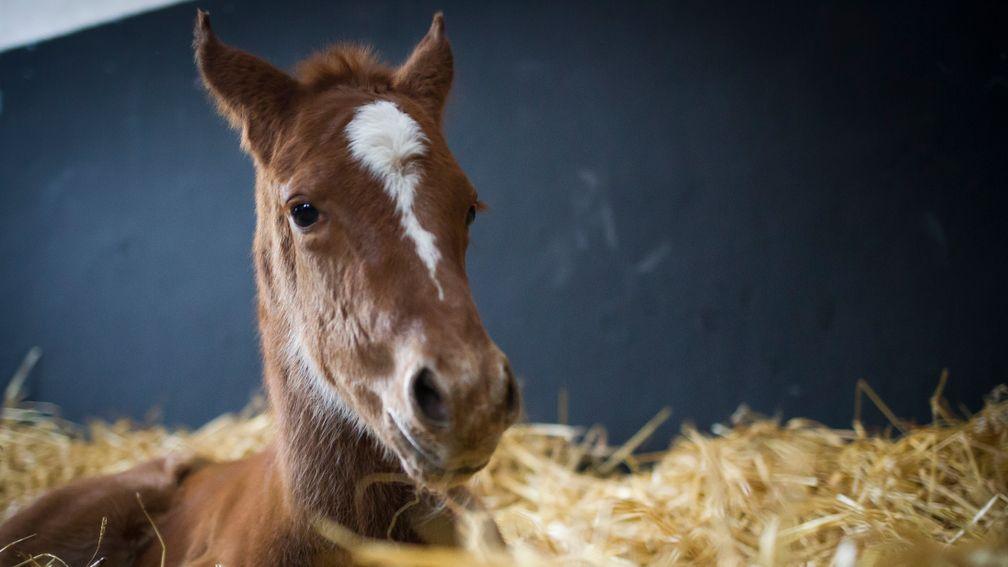Newborn foals most at risk from equine flu says TBA veterinary adviser
Irish Thoroughbred Breeders' Association optimistic about lack of disruption

Newborn foals are among the most at risk members of the horse population, the Thoroughbred Breeders' Association's veterinary adviser James Crowhurst said on Thursday, following the confirmation of an outbreak of equine influenza.
While cases of the highly contagious virus have so far been confined to horses of racing age, Crowhurst, who is also a consultant clinician at the Newmarket Equine Hospital, said the TBA was understandably worried by the situation.
"Obviously we are concerned on behalf of breeders because flu is very serious, particularly with young foals and especially those under a month old," he said. "Our advice is to give extra flu boosters to mares before they are covered and to have extra vigilance where there's any crossover between horses in training and breeding stock.
"The outbreak, such as it is, hasn't been reported on studs yet, and it's been a very long time since it's been reported on studs, luckily. But we want to keep it that way because of how serious it is."
The outbreak could hardly have occurred at a worse time for breeders as, with the foaling season in full swing, nurseries across Britain and Ireland will be welcoming new arrivals on a daily basis over the coming months.
Crowhurst explained that the underdeveloped immune systems of newborn foals meant that they could not be vaccinated directly against diseases such as equine influenza, and said that the best course of action was to ensure mares are properly vaccinated during pregnancy.
"Foals aren't immunological competent until five or six months of age," he said. "When it comes to protecting foals, the aim is to boost mares in the later stages of pregnancy, then the significant antibodies will come through the mare's colostrum so [the foal] will absorb it.
"But they can only do that in the first day of life, then they can't absorb any more antibodies. So their protection comes from the mare's own antibodies, which she concentrates in her first milk. By boosting the mares you give some protection to the foals until such time as they are immunological competent to receive a vaccination."
As those confirmed cases of equine influenza so far have been restricted to the racing population, Crowhurst said that there was no immediate need to limit movement of breeding stock, but added that the TBA would be remaining agile in its response to any further developments.
"We don't have any plans for restricting movement at present, but if the disease gets into breeding stock everything will have to be under review," he said.
That view on the movement of breeding stock was mirrored by the TBA's Irish counterpart, the Irish Thoroughbred Breeders' Association, which foresees no disruption to the breeding season.
The organisation's chief executive Shane O'Dwyer said: "The ITBA notes the recent cases of equine influenza and encourages breeders to check the vaccination status of their horses.
"If they have not been vaccinated within the last six months, the ITBA advises breeders to contact their veterinary surgeons and arrange to vaccinate them with the appropriate vaccine.
"If any of the horses in their care show signs of respiratory disease, breeders should contact their veterinary surgeons, who can then make appropriate judgements on the possible causes and treatments.
"Laboratory diagnostic testing for equine influenza is available free of charge at the Irish Equine Centre. Equine influenza in well vaccinated horses is usually transient and self-limiting.
"As with all other equine diseases, quarantine and isolation of horses arriving onto stud farms is part of essential good management, as is well described in the Codes of Practice."
Studs braced for challenging start to breeding season after equine flu outbreak
Published on 7 February 2019inNews
Last updated 19:04, 7 February 2019
- Leo Powell announced as independent chairman of the Bloodstock Industry Forum
- Honeysuckle silks to be displayed at Irish National Stud following six-figure sale at Goffs Punchestown
- Shortlisted nominees announced for the tenth TBA National Hunt Breeders’ Awards
- Racing Post Foal Gallery: May
- Blackbeard's sister and €2.6 million Goffs graduate Run Away makes successful debut at Yarmouth
- Leo Powell announced as independent chairman of the Bloodstock Industry Forum
- Honeysuckle silks to be displayed at Irish National Stud following six-figure sale at Goffs Punchestown
- Shortlisted nominees announced for the tenth TBA National Hunt Breeders’ Awards
- Racing Post Foal Gallery: May
- Blackbeard's sister and €2.6 million Goffs graduate Run Away makes successful debut at Yarmouth